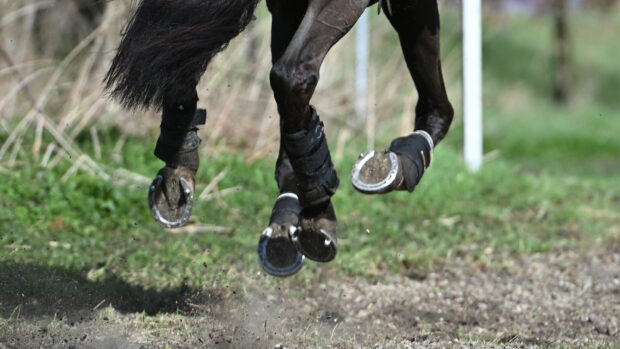Bridleways and footpaths have been suffering the worst fly-tipping for 13 years, with 543 incidents every day on average.
There were 1.1 million recorded cases of fly-tipping in the UK last year, the most since 2008/9, and footpaths and bridleways were the worst hit, with 10% more incidents than the previous 12 months.
Dumped items include tyres, up by a quarter on the previous year, and vehicle parts, up by 15%. There was also nearly a 50% increase in the amount of oils or fuels and chemical drums fly-tipped.
Campaigners are warning of the impact on natural landscapes, and on people such as riders who use the routes. Anyone who spots dumped waste is urged to report it to their council, which can be done via the Government website, or FixMyStreet.
Susie Burrage, ambassador and board member of the Global Recycling Foundation, says: “Many villages, towns and cities have seen junk piled up high in remote spots, as people clear out their homes to make space for offices. Huge amounts of taxpayers’ money is now being spent on litter collection, which could be going to vital public services.
“Litter is pollution and people underestimate the negative impact it has. Many people wrongly believe their individual actions will not harm the environment. For example, cigarette butts (which take 10 years to decompose) leach toxic substances into soil and water. Just one cigarette butt can contaminate 200 litres of water.
“I believe fines have helped to change individual behaviour, but we must challenge and change consumer behaviour. People must be educated in the best ways of preserving our natural resources and given easy access to well-organised and efficient recycling systems.”
Trainee solicitor Hannah Poole, of criminal defence firm Olliers, said fly-tipping is different to littering as it is defined as the illegal deposit of waste on land, removing it from where it was originally produced, with the deliberate aim to dispose of it unlawfully.
“Any individual who produces waste has a duty of care to ensure that it’s disposed of properly,” she said. “This applies to both householders and businesses. If convicted, the penalties individuals may face include a fine and/or a prison sentence of up to five years.
“There is no requirement for people to report fly-tipping, but to encourage the public to report it, it needs to be easy and individuals need to know it is worth reporting. To report fly-tipping or illegal waste dumping, individuals should contact the local council – and we need more people to do just that.”
You might also be interested in:

Colt with broken neck dumped alive on rubbish pile *warning, graphic image*
The RSPCA is appealing for information after the pony was left, severely injured, in a pile of fly-tipped waste

‘It makes my blood boil’: rider fuming over fly-tipping
'I was absolutely shocked to see what was causing the problem'

What to do when faced with fly-tipping while out hacking
Here’s what to do if you encounter fly tipping while out with your horse

Subscribe to Horse & Hound magazine today – and enjoy unlimited website access all year round
Horse & Hound magazine, out every Thursday, is packed with all the latest news and reports, as well as interviews, specials, nostalgia, vet and training advice. Find how you can enjoy the magazine delivered to your door every week, plus options to upgrade your subscription to access our online service that brings you breaking news and reports as well as other benefits.




